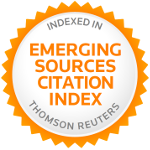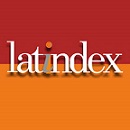Technostress, Work Performance, Job Satisfaction, and Career Commitment of Teachers amid COVID-19 Crisis in the Philippines
DOI:
https://doi.org/10.46661/ijeri.6145Keywords:
Educational technology, psychological effect, Distance education, teachers, pandemic, PhilippinesAbstract
The perception of technostress in education constantly increasing to unprecedented levels is not new. However, in novel situations like the global COVID-19 crisis, technostress and its influence on important teaching facets deserve a revisit. This paper focuses on the association of technostress on the sample characteristics and organizational performance variables of the teachers in the context of emergency distance education brought by the COVID-19 crisis. Following a mainly correlational research design, 2,272 teachers from Mindanao, Philippines were taken as a sample. The data collected through adapted instruments were treated using descriptive and inferential statistics. The results showed that the teachers experience moderate level of technostress, very high levels of work performance and job satisfaction, and high level of career commitment. It was further revealed that technostress and its four sets significantly differed across age, gender, marital status, and teaching experience. Lastly, it was found out that technostress has a significant negative relationship with work performance. The practical implications of these outcomes on the professional development of the teachers in the context of emergency distance education are discussed at the end of the study.
Downloads
References
Akinwale, A. S., & Okotoni, C. A. (2019). Assessment of job commitment of secondary school teachers in Osun State, Nigeria. PEOPLE: International Journal of Social Sciences, 4(3), 1553-1572. https://doi.org/10.20319/pijss.2019.43.15531572
Annalakshmi, N., & Jayanthy, A. C. (2019). Blended Learning: Augmenting Academic Performance of High School Students. International Journal of Advanced Science and Technology, 28(18), 677-683.
http://sersc.org/journals/index.php/IJAST/article/view/2785
Anoba, J. L. D., & Cahapay, M. B. (2020). The readiness of teachers on blended learning transition for post-COVID-19 period: An assessment using parallel mixed method. PUPIL: International Journal of Teaching, Education and Learning, 4(2), 295-316. https://doi.org/10.20319/pijtel.2020.42.295316
Ayyagari, R., Grover, V., & Purvis, R. (2011). Technostress: Technological antecedents and implications. MIS Quarterly, 35(4), 831-858. https://doi.org/10.2307/41409963
Barron, M., Cobo, C., Munoz-Najar, A., & Ciarrusta, I. S. (2021, February 18). The changing role of teachers and technologies amidst the COVID 19 pandemic: key findings from a cross-country study. World Bank Blogs. https://blogs.worldbank.org/education/changing-role-teachers-and-technologies-amidst-covid-19-pandemic-key-findings-cross
Efilti, E., & Çoklar, A. N. (2019). Teachers' Technostress Levels as an Indicator of Their Psychological Capital Levels. Universal Journal of Educational Research, 7(2), 413-421. https://doi.org/10.13189/ujer.2019.070214
Cahapay, M. B. (2020). A reconceptualization of learning space as schools reopen amid and after COVID-19 pandemic. Asian Journal of Distance Education, 15(1), 269-276. https://doi.org/10.5281/zenodo.3892969
Cahapay, M. B. (2021). To get or not to get: Examining the Intentions of Philippine Teachers to Vaccinate against COVID-19. Journal of Human Behavior in the Social Environment, 1-11. https://doi.org/10.1080/10911359.2021.1896409
Carreon,T. R., Rotas, E. E., Cahapay, M. B., Garcia, K. A., Amador, R. M., & Anoba, J. L. D. (2021). Fear of COVID-19 and Remote Teaching Burnout of Philippine K to 12 Teachers. IJERI: International Journal of Educational Research and Innovation, (15), 552-567. https://doi.org/10.46661/ijeri.5853
Çoklar, A. N., & Bozyiğit, R. (2021). Determination of Technology Attitudes and Technostress Levels of Geography Teacher Candidates. International Journal of Geography and Geography Education, 44, 102-111. https://doi.org/10.32003/igge.933183
Çoklar, A. N., Efilti, E., & Şahin, Y. L. (2019). Technostress as a Factor Affecting the Use of Technology by Beginning Teachers. Handbook of Research on Faculty Development for Digital Teaching and Learning. https://doi.org/10.4018/978-1-5225-8476-6.ch023
Ennis, L. A. (2005). The evolution of technostress. Computers in Libraries, 25(8), 10-12. https://eric.ed.gov/?id=EJ718549
Estrada-Muñoz, C., Castillo, D., Vega-Muñoz, A., & Boada-Grau, J. (2020). Teacher technostress in the Chilean school system. International Journal of Environmental Research and Public Health, 17(15), 1-17. https://doi.org/10.3390/ijerph17155280
Hassan, N., Yaakob, S. A., Mat Halif, M., Abdul Aziz, R., Abdul Majid, A., & Sumardi, N. A. (2018). The effects of technostress creators and organizational commitment among school teachers. Asian Journal of University Education, 15(3), 92-102. https://eric.ed.gov/?id=EJ1238657
Heo, E. J., & Jung, M. S. (2020). Effects of Nurses' Technostress on Organizational Performance. The Korean Journal of Health Service Management, 14(3), 15-30. https://doi.org/10.12811/kshsm.2020.14.3.015
Isiakpona, C., & Adebayo, O. (2011). The Impact of Technostress on Librarians: A Survey of Covenant University Library. The Information Manager, 11(1-2), 56-61. https://www.ajol.info/index.php/tim/article/view/83640
Jameel Abo Mokh, A., Jameel Shayeb, S., Badah, A., Asim Ismail, I., Ahmed, Y., K. A. Dawoud, L., & Essam Ayoub, H. (2021). Levels of Technostress Resulting from Online Learning among Language Teachers in Palestine during the Covid-19 Pandemic. American Journal of Educational Research, 9(5), 243-254. https://doi.org/10.12691/education-9-5-1
Khuzaini, K., & Zamrudi, Z. (2021). Technostress among marketing employee during the COVID-19 pandemic: Exploring the role of technology usability and presenteeism. JEMA: Jurnal Ilmiah Bidang Akuntansi dan Manajemen, 18(1), 36-60. http://dx.doi.org/10.31106/jema.v18i1.10050
Laspinas, M. L. (2015). Technostress: trends and challenges in the 21st century knowledge management. European Scientific Journal, 11(2), 205-217. https://core.ac.uk/reader/328024750
Lau F. (2017). Methods for Correlational Studies. In Lau F., & Kuziemsky C. (Eds.). Handbook of eHealth Evaluation: An Evidence-based Approach [Internet]. Victoria: University of Victoria. https://www.ncbi.nlm.nih.gov/books/NBK481614/
Lavrakas, P. J. (2008). Encyclopedia of survey research methods (Vols. 1-0). Thousand Oaks, CA: Sage Publications, Inc. https://doi.org/10.4135/9781412963947
Li, L., & Wang, X. (2021). Technostress inhibitors and creators and their impacts on university teachers’ work performance in higher education. Cognition, Technology & Work, 23(2), 315-330. https://doi.org/10.1007/s10111-020-00625-0
Magistra, S. N., Santosa, S., & Indriayu, M. (2021). Effect of Self-Efficacy and Technostress on Teacher Performance through Organizational Commitments. Dinamika Pendidikan, 16(1), 75-82. https://doi.org/10.15294/dp.v16i1.28993
Penado Abilleira, M., Rodicio-García, M. L., Ríos-de Deus, M. P., & Mosquera-González, M. J. (2021). Technostress in Spanish University Teachers During the COVID-19 Pandemic. Frontiers in psychology, 12(617650), 1-12. https://doi.org/10.3389/fpsyg.2021.617650
Pepe, J. (2011). The Relationship of Principal Resiliency to Job Satisfaction and Work Commitment: An Exploratory Study of K–12 Public School Principals in Florida. University of South Florida. https://digitalcommons.usf.edu/etd/3289/
Ragu-Nathan, T. S., Tarafdar, M., Ragu-Nathan, B. S., & Tu, Q. (2008). The consequences of technostress for end users in organizations: Conceptual development and empirical validation. Information systems research, 19(4), 417-433. https://doi.org/10.1287/isre.1070.0165
Rogayan Jr., D. V., & Dantic, M. J. P. (2021). Backliners: Roles of Science Educators in the Post-COVID Milieu. Aquademia, 5(2), ep21010. https://doi.org/10.21601/aquademia/11053
Salanova, M., Llorens, S., & Ventura, M. (2014). Technostress: The dark side of technologies. In The impact of ICT on quality of working life (pp. 87-103). Springer, Dordrecht. https://doi.org/10.1007/978-94-017-8854-0_6
Scaramuzzino, G., & Martinell Barfoed, E. (2021). Swedish social workers’ experiences of technostress. Nordic Social Work Research, 1-14. https://doi.org/10.1080/2156857X.2021.1951335
Shintri, S., & Narasalagi, V. M. (2021). Effect of Technological Intervention on Work-Life Balance. IOSR Journal of Business and Management, 23(6), 28-32. https://www.iosrjournals.org/iosr-jbm/papers/Vol23-issue6/Series-3/D2306032832.pdf
Sousa, V. D., Driessnack, M., & Costa Mendes, I. A. (2007). An overview of research designs relevant to nursing: Part 1: Quantitative research designs. Revista Latino-Americana de Enfermagem 15(3), 502-207. https://doi.org/10.1590/S0104-11692007000300022
Starkey, A., Shonfeld, M., Prestridge, S., & Cervera, M. (2021). Special issue: Covid-19 and the role of technology and pedagogy on school education during a pandemic. Technology, Pedagogy and Education, 30(1), 1-5. https://doi.org/10.26686/wgtn.14109866.v1
Tarafdar, M., Tu, Q., & Ragu-Nathan, T. S. (2010). Impact of technostress on end-user satisfaction and performance. Journal of Management Information Systems, 27(3), 303-334. https://doi.org/10.2753/MIS0742-1222270311
Tu, Q., Wang, K., & Shu, Q. (2005). Computer-related technostress in China. Communications of the ACM, 48(4), 77–81. https://doi.org/10.1145/1053291.1053323
Yadav, A., & Rahaman, A. (2020). Technostress Level of Teachers in Higher Education with Reference to Socio-Demographic Variables. Periodic Research, 9(2), 58-65. http://www.socialresearchfoundation.com/researchtimesview.php?id=399
Downloads
Published
How to Cite
Issue
Section
License
Copyright (c) 2021 Michael Cahapay, Nathaniel F. Bangoc II

This work is licensed under a Creative Commons Attribution-NonCommercial-NoDerivatives 4.0 International License.









